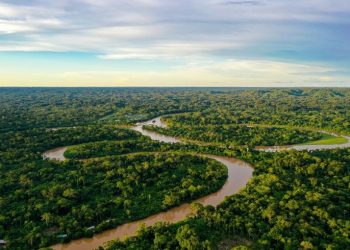Jakarta, Indonesia Sentinel — Meta has announced plans to build more than 50,000 kilometers of undersea internet cables spanning five continents in what will become the world’s longest subsea cable network. Called “Project Waterworth,” the initiative marks the first fully Meta-owned subsea cable infrastructure.
Gaya Nagarajan, Meta’s Vice President of Network Engineering states that Project Waterworth will deliver industry-leading connectivity to the United States, India, Brazil, South Africa, and other key regions.
“This multi-billion-dollar, long-term investment will expand and strengthen the world’s digital highways by establishing three new high-speed ocean corridors—essential for driving AI innovation globally,” Nagarajan said as reported by Kumparan.
Record Cable Projects
The Project Waterworth will be the world’s longest 24-fiber-pair subsea cable, covering a total distance of 50,000 kilometers which far exceeding Earth’s circumference of 40,030 kilometers, according to Meta.
This initiative will also surpass the current longest subsea cable project, 2Africa, a 45,000-kilometer cable network launched in 2022 by a consortium that also included Meta. Project Waterworth’s additional 5,000 kilometers of length will set a new benchmark in global connectivity.
Read Also:
Bybit Loses $1.5 Billion in Massive Hack, The Largest Crypto Theft in Hystory
Meta says the 24-fiber-pair system will feature a unique routing structure, allowing the cable to be deployed at depths of up to 7,000 meters (23,000 feet). This extreme depth is designed to minimize risks from external disruptions such as ship anchors or fishing activities that could damage the network.
Enhancing AI and Global Connectivity
While Meta has not disclosed specific applications for the undersea cable, the company emphasized that it will support digital communications, video streaming, online transactions, and other data-intensive services.
Once completed, the network will provide Meta with dedicated global data traffic routes, ensuring faster and more reliable connectivity for its services. With Meta’s platforms accounting for approximately 10% of global fixed internet usage and 22% of mobile traffic, the infrastructure is expected to significantly benefit the company’s ecosystem.
Beyond Meta’s internal use, Project Waterworth will also play a crucial role in supporting high-speed connectivit, a key factor in advancing AI technologies worldwide.
With Project Waterworth, Meta is not only expanding its digital infrastructure but also reinforcing its role in shaping the future of global connectivity. As demand for high-speed internet and AI-driven technologies continues to grow, this ambitious project of Meta could set a new standard for undersea cables networks, bridging continents and powering the next generation of digital innovation.
(Raidi/Agung)

























